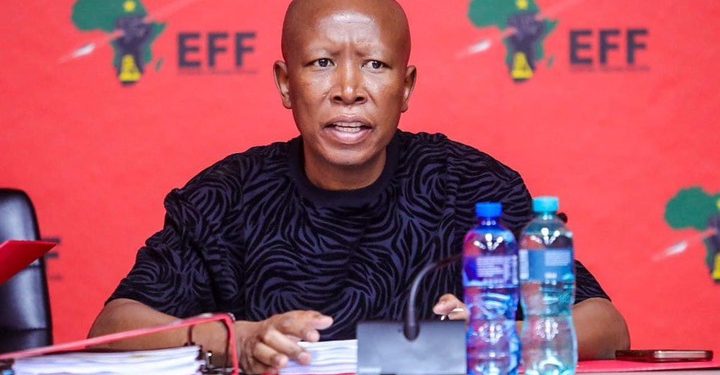- Julius Malema disclosed that Dali Mpofu suggested the EFF dissolve to merge with the new MK Party, a controversial proposal given the EFF’s established national standing.
- Critics argue the EFF, as a stable political entity, should not consider merging with the five-month-old MK Party, suggesting instead that the MK Party should dissolve into the EFF.
- The involvement of Floyd Shivambu, former EFF deputy president and current MK Party organizer, raises questions about leadership dynamics, with speculation about strategic motivations behind aligning with the newer party.
EFF President Julius Malema recently revealed a proposal from former party member Dali Mpofu that has stirred considerable controversy: the suggestion that the Economic Freedom Fighters (EFF) disband to merge with the newly formed MK Party. Malema’s disclosure has ignited debate, as the EFF, an established party with robust national structures, is seen by many as a stable political force. Critics argue that merging with the MK Party, a five-month-old political entity, would undermine the EFF’s influence and established position in South African politics.
Opponents of the merger proposal highlight what they view as a lack of respect for the EFF’s achievements and leadership, including Malema’s role. Many contend that it would be more appropriate for the MK Party to dissolve and join the EFF, given the latter’s stronger foundation and broader support base.
Adding to the intrigue, former EFF deputy president Floyd Shivambu, who now serves as the MK Party’s national organizer, has come under scrutiny. Initial rumors of Shivambu’s departure from the EFF fueled speculation, but it has since emerged that he declined the proposal to dissolve the EFF during recent discussions. This decision has raised questions about Shivambu’s loyalty and the relationship between him and Malema, as well as broader leadership dynamics within both parties.
Some political analysts speculate that certain EFF leaders may be drawn to the MK Party due to personal motivations or strategic aims, potentially in an attempt to position themselves favorably within the new party’s ranks. The debate surrounding Mpofu’s proposal has brought these internal dynamics to light, suggesting that while the merger may not proceed, some leaders are exploring new alliances that could reshape South Africa’s political landscape.






















